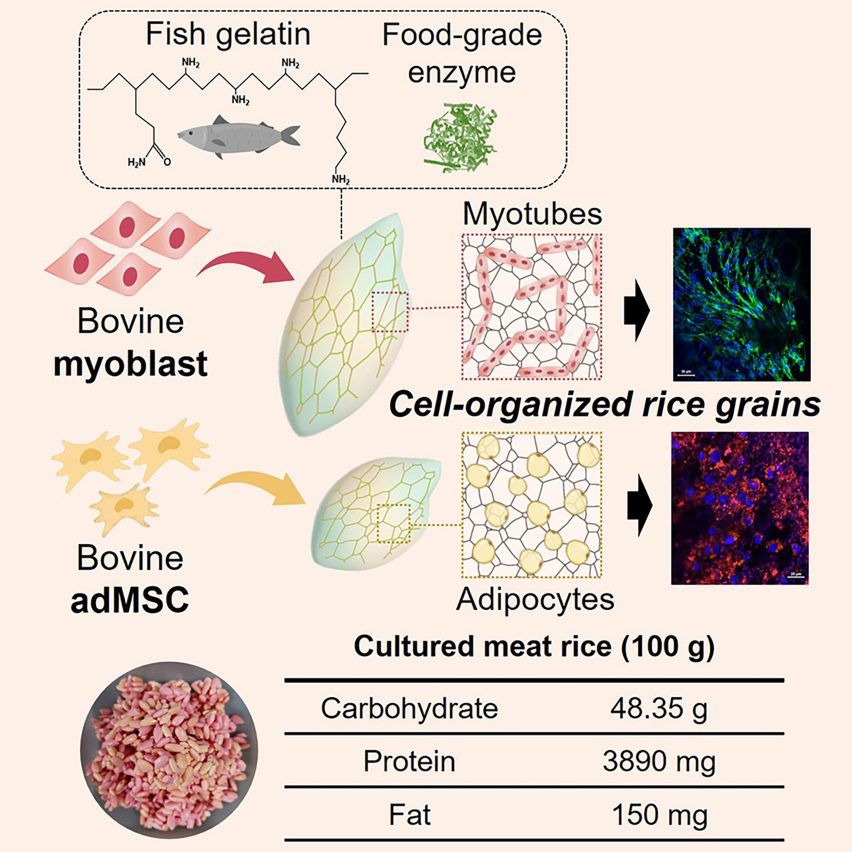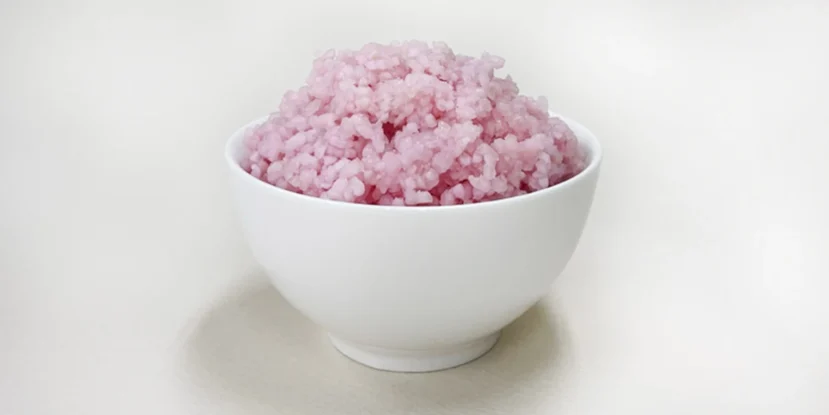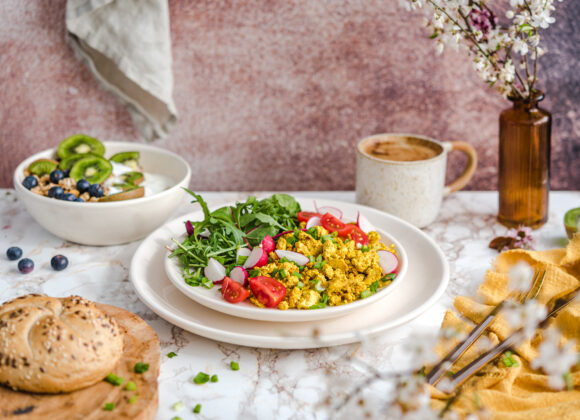Researchers at South Korea's Yonsei University have developed what they believe is a balanced, high-protein diet in the form of "beef rice", made by growing cow cells in rice grains.
This hybrid food, which is colored pale pink by the cell culture process, contains more protein and fat than standard rice, but has a low carbon footprint, prompting its creators to consider it as a potential future alternative to meat.
Beef rice was made by injecting muscle stem cells and cow fat into rice grains and allowing them to grow in a petri dish. Since rice grains are porous and have a rich internal structure, cells can grow in them in the same way as in an animal. A coating of gelatin – in this case of fish origin-additionally helps the cells attach to the rice.
Although beef rice may sound like a form of genetically modified food, there are no changes in the DNA of plants or animals. Instead, the process is a type of meat obtained from a cell or laboratory culture, but with beef grown in rice.
In a paper published in the journal Matter, researchers at Yonsei University explain that their process is similar to that used to produce a product already sold in Singapore – farmed meat grown on textured soy-based vegetable protein (TVP).
They claim that soy and nuts are the first products used to grow animal cells, but their usefulness is limited because they are common allergens and do not have as much cell retention potential as rice.

The nutritional benefits of their beef rice are also low at the moment, but researchers from Yonsei University's Department of Chemical and Biomolecular Engineering say that with further optimization, it can include more cells and therefore more protein.Hybrid rice contains 3,890 milligrams of protein and 150 milligrams of fat per 100 grams – just 310 milligrams more protein and 10 milligrams more fat than standard rice.
"Although hybrid rice grains still have a lower protein content than beef, technological advances that can improve the cellular capacity of rice grains will undoubtedly improve the nutritional value of hybrid rice," the researchers said.
They also believe that the product can be sold inexpensively, and advertise the short time needed to increase the nutritional value through breeding.










 Junior specialist in Marketing Communications and PR.
Junior specialist in Marketing Communications and PR.


 He is a graduate of the University of Warsaw and the Main School of Agriculture. We have been in the HoReCa industry for more than 10 years. For many years, he has been associated with the Trip group, Sobienie Royal Golf and Country Club, and the Florentin Restaurant in Warsaw.
He is a graduate of the University of Warsaw and the Main School of Agriculture. We have been in the HoReCa industry for more than 10 years. For many years, he has been associated with the Trip group, Sobienie Royal Golf and Country Club, and the Florentin Restaurant in Warsaw. She graduated from the Faculty of Architecture of the Warsaw Technical University with a degree in Architecture for the Knowledge Society and Visual Communications at the Polytechnic University of Milan. A specialist in creating a mood. She has gained experience at home and abroad at numerous international seminars (Seville, Lisbon, Florence), fellowships at La Sapienza (Rome), etc. m.in. in Carmi e Ubertis and ADM Milano.
She graduated from the Faculty of Architecture of the Warsaw Technical University with a degree in Architecture for the Knowledge Society and Visual Communications at the Polytechnic University of Milan. A specialist in creating a mood. She has gained experience at home and abroad at numerous international seminars (Seville, Lisbon, Florence), fellowships at La Sapienza (Rome), etc. m.in. in Carmi e Ubertis and ADM Milano.








 A manager with many years of experience in the cosmetics, food, and children's industries. During his career, he was associated with such companies as: L'Oreal, Samsung, Danone-Nutricia, Unilever. During his professional life, he was responsible, among other things, for the development of e-commerce sales and content in Poland and the countries of Central and Eastern Europe.
A manager with many years of experience in the cosmetics, food, and children's industries. During his career, he was associated with such companies as: L'Oreal, Samsung, Danone-Nutricia, Unilever. During his professional life, he was responsible, among other things, for the development of e-commerce sales and content in Poland and the countries of Central and Eastern Europe. 

























































